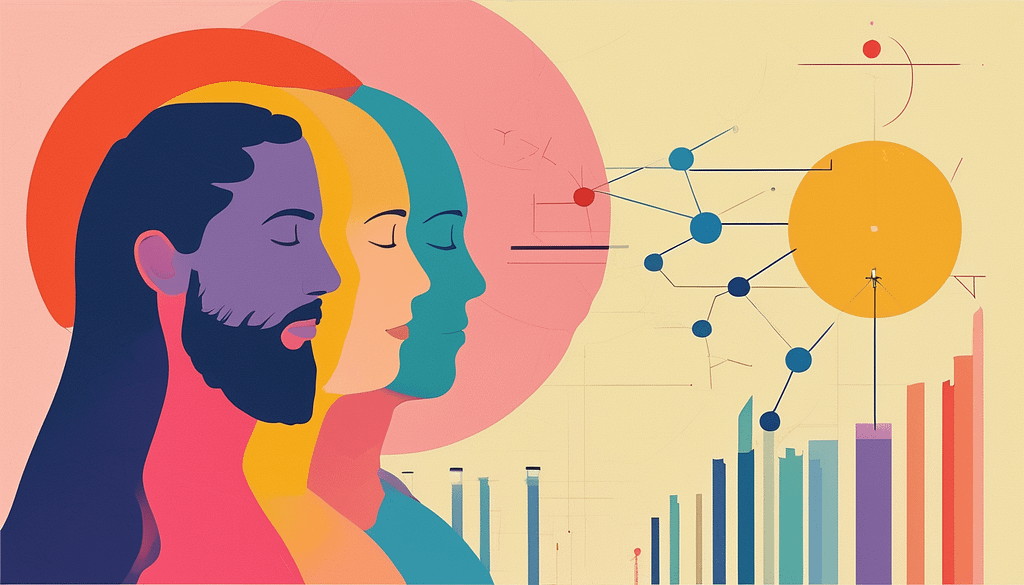Relating to Intelligent Beings Similar to Humans: Moral and Technological Considerations
The discovery of intelligent beings who are biologically similar to humans would mark one of the most pivotal moments in history. It would not only challenge our understanding of biology and evolution, but it would also force us to confront profound questions about ethics, rights, and responsibilities. How should we relate to these beings? Do they share the same moral responsibilities and rights as humans on Earth? Should we extend the principles of justice, compassion, and stewardship to them?
These questions sit at the intersection of science, technology, and morality. To explore them fully, we must consider not only the biological similarities between humans and these beings but also their cognitive, emotional, and social capacities. Moreover, we must examine the implications of technology and communication when it comes to building a relationship with a new species that is both like and unlike ourselves.
Understanding Biological Similarity and Its Implications
If we encounter intelligent beings who are biologically similar to us, it raises questions about the evolutionary processes that led to their development. Did life on their planet evolve under similar conditions to Earth? Are their brains structured like ours, enabling them to experience emotions, empathy, or abstract reasoning? These biological factors are critical in determining how we should relate to them.
For instance, if these beings possess a comparable neurological makeup that allows for complex social interactions, problem-solving, and moral reasoning, we would likely need to treat them as moral agents—beings capable of understanding right and wrong. This would mean they share, at least in part, the same moral responsibilities that we do. If they can grasp concepts of fairness, justice, and empathy, they would be expected to uphold those standards in their interactions with us and each other.

Extending Rights and Moral Responsibilities
If these beings have cognitive and emotional capacities similar to humans, they would logically deserve rights equivalent to those we afford to ourselves. Fundamental human rights—such as the right to life, freedom from harm, and autonomy—would likely apply to them as well.
However, extending these rights introduces complex ethical considerations. Would these beings have the same understanding of rights and responsibilities as we do? Suppose their culture or society differs significantly from ours. How do we ensure that our systems of law and governance respect their uniqueness while also holding them to a standard that prevents harm?
For example, consider a situation where these beings have developed a different system of ethics. Their understanding of morality may prioritize community well-being over individual freedom, or they may have evolved with different survival instincts that lead them to value aggression over cooperation. In these cases, we would face difficult decisions about whether to impose human norms and laws on them or create a new, hybrid framework that respects both sets of values.
The Role of Justice and Compassion
Justice and compassion are central to human morality and ethics, and extending these concepts to new intelligent beings would be a significant challenge. Justice, in this context, is not just about law enforcement or governance but also about fairness, equity, and respect for dignity. Compassion involves understanding and empathy—our ability to put ourselves in the shoes of others, recognizing their needs and suffering.
If we discover intelligent beings similar to humans, it would be essential to approach them with an attitude of compassion. Given their cognitive and emotional similarities, they might experience fear, pain, or confusion when encountering us. Our technological advancements and cultural dominance could easily lead to exploitation or mistreatment if we do not adopt a compassionate and inclusive approach.
Moreover, justice would require that we consider the impact of our interactions on their world, culture, and society. We would need to ensure that our technological and scientific advances are used responsibly. For instance, would we introduce technologies that disrupt their environment or social structures? Would we try to control or manipulate their resources for our benefit? Justice demands that we engage ethically and equitably, ensuring that both humans and these beings have a say in shaping the future.
Stewardship and Environmental Considerations
The concept of stewardship extends beyond human beings to include the care and preservation of the environment and ecosystems. If intelligent beings similar to humans exist on another planet, they likely have their own relationship with their environment. Understanding and respecting this relationship would be crucial.
Just as humans have learned the importance of sustainability on Earth, we would need to practice stewardship when interacting with these beings and their planet. We should be careful not to exploit their natural resources or disrupt their ecosystems in the name of scientific or technological advancement. Instead, we should aim for collaboration, ensuring that both species can thrive without degrading the environment or causing harm to each other.
This also raises questions about the role of technology in environmental stewardship. Could we use our technological advancements to help these beings solve environmental challenges on their planet, such as climate change or resource depletion? Alternatively, would our intervention risk creating dependencies or unforeseen consequences that could destabilize their world?

Building Ethical Relationships Through Technology
In the modern era, technology is a powerful tool for communication, collaboration, and understanding. If we discover intelligent beings similar to humans, we would likely rely heavily on technology to bridge the gaps between our cultures, languages, and knowledge systems.
However, technology also presents ethical dilemmas. For instance, should we introduce advanced technologies to their society if they are not yet technologically advanced? Would doing so accelerate their development in ways that harm their culture or environment? Would they view our technological superiority as a threat, leading to conflict or misunderstanding?
The use of technology in building relationships with these beings must be done cautiously and thoughtfully. Our goal should be to foster mutual respect and understanding, rather than domination or exploitation. Artificial intelligence, translation technologies, and cultural exchange platforms could help facilitate this dialogue, but they must be implemented to prioritize ethical engagement.
Conclusion: A New Ethical Frontier
The discovery of intelligent beings who are biologically similar to us would present an unprecedented ethical and technological challenge. As we navigate this new frontier, we must extend the principles of justice, compassion, and stewardship to these beings. Doing so requires not only recognizing their rights and responsibilities but also considering how our interactions—through both science and technology—affect their world.
Ultimately, how we relate to these beings will define the future of human exploration and our place in the universe. By approaching this encounter with humility, empathy, and a commitment to ethical stewardship, we can create a foundation for peaceful coexistence and mutual growth.